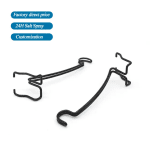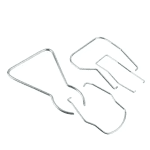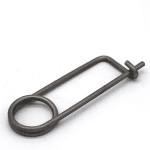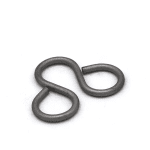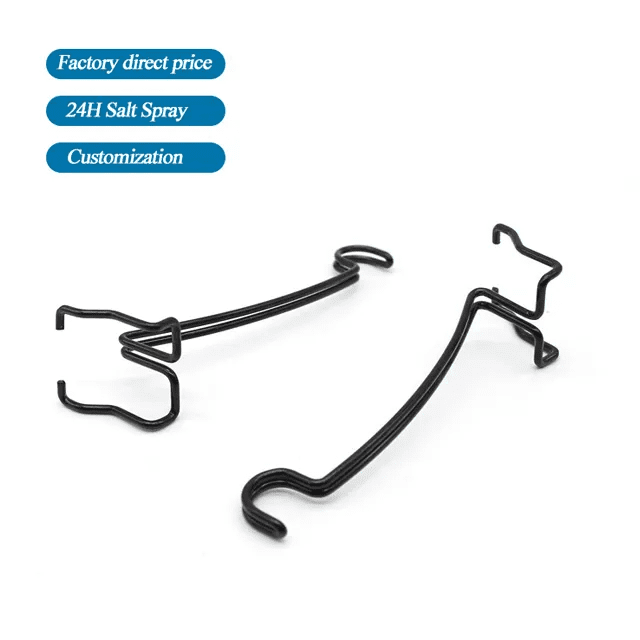
Wire Forms Are Versatile And Widely Used In Various Industries, From Jewelry Making To Industrial Applications. The Materials Used For Wire Forms Can Vary Depending On The Specific Application, Desired Properties, And Budget. Here Are Some Of The Most Common Materials Used For Wire Forms:
1. Steel: Steel Wire Is One Of The Most Commonly Used Materials For Wire Forms. It Is Strong, Durable, And Can Be Easily Shaped Into Different Forms. Steel Wire Forms Are Often Used In Industrial Applications, Such As Springs, Clips, And Fasteners. Steel Wire Can Be Coated With Different Materials, Such As Zinc Or Plastic, To Enhance Its Properties And Prevent Corrosion.
2. Copper: Copper Wire Is Widely Used In Electrical Applications Due To Its Excellent Conductivity. It Is Also Malleable And Can Be Easily Shaped Into Different Forms. Copper Wire Forms Are Commonly Used In Electrical Wiring, Motors, And Transformers. Copper Wire Can Be Coated With Different Materials, Such As Tin Or Silver, To Enhance Its Properties And Prevent Oxidation.
3. Aluminum: Aluminum Wire Is Lightweight And Has Good Conductivity, Making It An Excellent Choice For Electrical Applications. It Is Also Corrosion-Resistant And Can Be Easily Shaped Into Different Forms. Aluminum Wire Forms Are Commonly Used In Electrical Wiring, Antennas, And Conductors.
4. Brass: Brass Wire Is A Combination Of Copper And Zinc And Has Good Conductivity And Corrosion Resistance. It Is Also Malleable And Can Be Easily Shaped Into Different Forms. Brass Wire Forms Are Commonly Used In Jewelry Making, Decorative Items, And Musical Instruments.
5. Nickel: Nickel Wire Is Strong, Corrosion-Resistant, And Has Good Conductivity. It Is Often Used In High-Temperature Applications, Such As Heating Elements And Furnace Parts. Nickel Wire Forms Are Also Used In Jewelry Making And Decorative Items.
6. Titanium: Titanium Wire Is Lightweight, Strong, And Corrosion-Resistant. It Is Often Used In Medical Implants, Aerospace Applications, And Jewelry Making. Titanium Wire Forms Are Also Used In Springs, Fasteners, And Other Industrial Applications.
7. Stainless Steel: Stainless Steel Wire Is Strong, Corrosion-Resistant, And Has Good Conductivity. It Is Often Used In Applications Where Hygiene And Durability Are Important, Such As Medical Instruments, Food Processing Equipment, And Marine Applications. Stainless Steel Wire Forms Are Also Used In Jewelry Making And Decorative Items.
8. Carbon Steel: Carbon Steel Wire Is Strong And Durable, Making It An Excellent Choice For Industrial Applications. It Is Often Used In Springs, Fasteners, And Other Mechanical Components. Carbon Steel Wire Forms Can Be Coated With Different Materials, Such As Zinc Or Plastic, To Enhance Its Properties And Prevent Corrosion.
9. Galvanized Steel: Galvanized Steel Wire Is Coated With A Layer Of Zinc To Enhance Its Corrosion Resistance. It Is Often Used In Outdoor Applications, Such As Fencing, And In Industrial Applications, Such As Springs And Fasteners.
In Conclusion, The Materials Used For Wire Forms Can Vary Depending On The Specific Application, Desired Properties, And Budget. Steel, Copper, Aluminum, Brass, Nickel, Titanium, Stainless Steel, Carbon Steel, And Galvanized Steel Are Some Of The Most Commonly Used Materials For Wire Forms. Each Material Has Its Own Unique Properties And Advantages, Making It Important To Choose The Right Material For The Specific Application.
I Wish Everyone Can Find Their Own Hardware Accessories, Xiamen Hongsheng Spring Welcome Your Choice!



